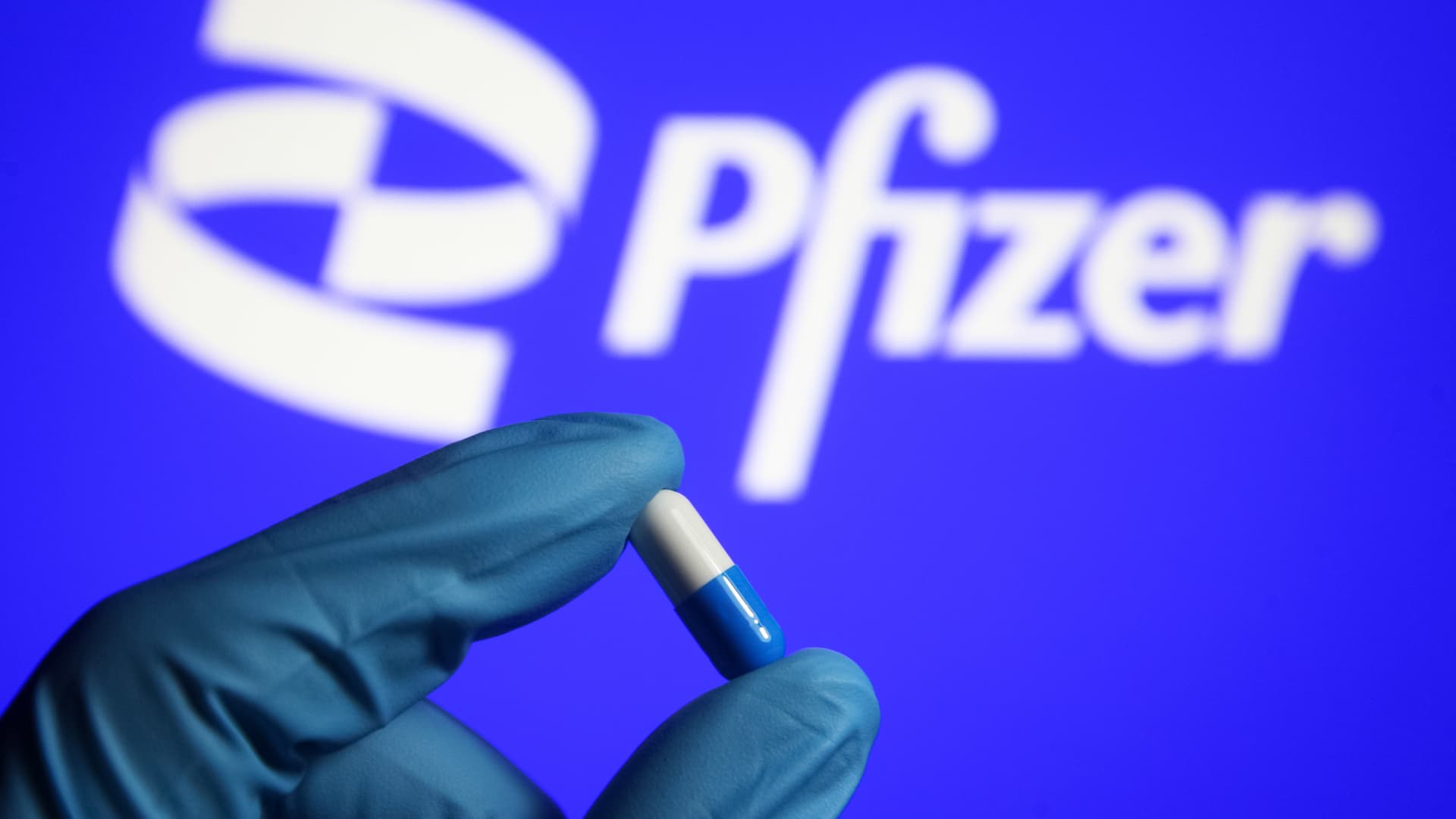Sopa Images | Lightrocket | Getty ImagesPfizer's twice-daily version of its experimental weight loss pill has now joined a long list of other scrapped
Sopa Images | Lightrocket | Getty Images
Pfizer’s twice-daily version of its experimental weight loss pill has now joined a long list of other scrapped drugs that aimed to treat obesity but came with unintended consequences.
The drugmaker on Friday said it will stop developing the twice-daily treatment, danuglipron, after obese patients taking the drug lost significant weight but experienced high rates of adverse side effects in a midstage clinical trial. Pfizer noted that it will release data on a once-daily version of the pill next year, which will “inform the path forward.”
The announcement came six months after Pfizer scrapped a different once-daily pill in June, citing elevated liver enzymes. Pfizer’s move to drop two obesity drug candidates in just a few months demonstrates how difficult it is to develop an effective, safe and tolerable treatment for losing weight, even after recent breakthrough medications entered the space.
That includes Novo Nordisk‘s Wegovy and diabetes treatment Ozempic as well as Eli Lilly‘s diabetes drug Mounjaro. They have all skyrocketed in popularity — and slipped into shortages — over the last year for safely and successfully causing significant weight loss. An estimated 40% of U.S. adults are obese, making those drugs the pharmaceutical industry’s newest cash cow.
But before the current weight loss industry gold rush, the path to treating obesity was strewn with failures dating back decades.
The main reason many experimental treatments were scrapped by drugmakers, rejected by U.S. regulators or eventually pulled from the market were unintended side effects, including elevated liver enzymes, cancer risks, cardiovascular risks and serious psychiatric problems, such as suicide.
Eisai’s lorcaserin
One of the most recent casualties among experimental obesity drugs is Japanese drugmaker Eisai’s lorcaserin, which was removed from the market in 2020 due to causing an increased risk of cancer in patients.
The Food and Drug Administration greenlit lorcaserin in 2012 based on several clinical trials but required Eisai to conduct a larger and longer study on the drug after the approval.
That study on about 12,000 patients over five years found that more people taking lorcaserin were diagnosed with cancer compared with those taking a placebo, which led the FDA to pull the drug from the market.
Lorcaserin, marketed under the brand name Belviq, didn’t appear to gain much traction while it was commercially available. In its full-year 2019 earnings, Eisai reported that Lorcaserin had sales of $28.1 million in the U.S. for the year. Global sales of the drug were about $42 million. Eisai’s total sales for the year were roughly $4.42 billion.
Sanofi’s rimonabant
An obesity drug called rimonabant from Sanofi and Aventis was withdrawn from all markets in 2008 due to the risk of serious psychiatric problems, including suicide.
Notably, the treatment never won approval in the U.S. because a panel of experts to the FDA rejected the drug amid fears that it may cause suicidal thoughts. But European regulators approved rimonabant, marketed under the name Acomplia, in 2006 based on extensive clinical trials.
Two years later, European regulators recommended the suspension of rimonabant after one of its committees determined that the risks of the treatment — particularly psychiatric issues — outweighed its benefits.
The treatment suppressed appetite by blocking the receptor of cannabinoid substances in the brain, which plays an important role in regulating the body’s food intake and metabolism.
Due to rimonabant’s limited time on the market and failure to win U.S. approval, the drug never reached Sanofi’s lofty projection that it would eventually generate $3 billion a year or more.
Abbott Laboratories’ sibutramine
Several obesity drugs have also been discontinued, rejected or pulled from the market due to unintended cardiovascular risks.
That includes sibutramine from Abbott Laboratories, which was once widely used as a treatment for obesity along with diet and exercise.
The drug was first approved in 1997, but carried warnings about high blood pressure and a risk of heart attack and stroke in cardiovascular patients.
A large, long-term trial on nearly 10,000 adults confirmed that sibutramine was associated with a significant increase in cardiovascular events, which prompted regulators in the U.S. and Europe to pull the drug from those markets in 2010.
Sales of sibutramine had been dwindling ahead of its removal from the market. The drug raked in only $80 million globally, including $20 million from the U.S., in the first nine months of 2010.
Recent evidence suggests that the newest slate of approved weight loss drugs may have the opposite effect on heart health: Weekly injections of Wegovy slashed the overall risk of heart attack, stroke and death from cardiovascular causes by 20%, according to a recent clinical trial.
www.cnbc.com

COMMENTS